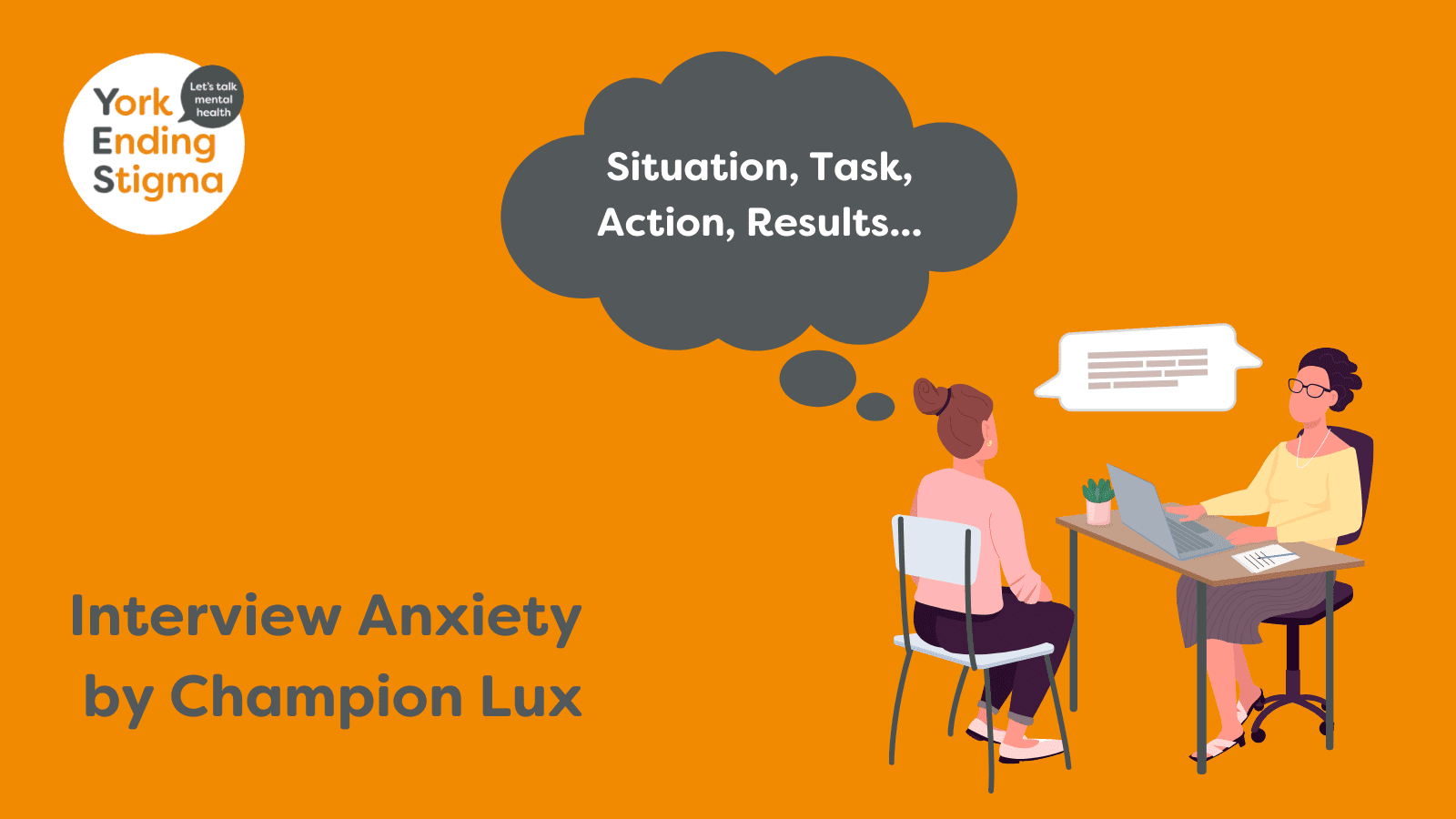
As someone who, even in primary school, was terrified of being called on to answer a question in front of the class, the idea of being in the spotlight and scrambling to answer questions makes me sick to my stomach. I had spent a lot of time avoiding even the idea of an interview, getting through my university applications without needing to partake in one, so when it came to my last year of university, I had no idea how to not be so terrified and anxious.
“The idea of being in the spotlight and scrambling to
answer questions makes me sick to my stomach.”
I knew if I got overwhelmed and began to panic, it would lead to physical signs of anxiety that could make the interview so much harder. From my heart pounding in my ears to nausea and my throat closing up, leading to my voice wavering and having to fight back tears.
I had no interview experience until my final year of my undergraduate degree, and it wasn’t until I partook in a mock interview run by my university that I began to gather my thoughts, figuring out my strengths and capabilities. I was provided with a range of generic interview questions beforehand, giving me an idea of possible answers I could give, using the skills I had included on my CV (something else I had been anxious about writing without help) to support my answers and help my confidence.
But I still worried about every small detail of an interview, from the structuring of interview questions, to how many people would be interviewing me, the dress code and the location of the interview.
“It wasn’t until I partook in a mock interview run by my
university that I began to gather my thoughts, figuring
out my strengths and capabilities.”
Luckily, I was informed that the mock interview would be hosted online over Microsoft Teams. My anxiety then shifted into whether whoever was interviewing me would hear me, and I would hear them, crossing my fingers that none of the other students I was living with at the time would make a noise that would throw off my train of thought and send me spiralling. Despite my anxieties, I managed to answer each of the questions that the two Careers Consultants at Student Futures were asking, writing down as much of
the advice as I could in preparation for my next interview, whenever that would be.
A key thing that was suggested to me in the advice I was given was an interview technique called CAR (challenge, action, result) and STAR (situation, task, action, results), which I found helps to break down the questions asked, giving context from your own experiences and it stops you from rambling or giving unnecessary details, something that happens to me when anxious or excited. Indeed’s career guide has a helpful article for the interview technique and a link to this can be found at the end of this blog.
“When it came to my next interview, I wanted to feel as
prepared as possible.”
When it came to my next interview, it was for my current employer and I wanted to feel as prepared as possible. I have found that a cause for my overthinking and anxiousness is a lack of knowing enough information or answers to calm myself, so I threw myself into conducting as much research as I could. I searched online about the company I was applying to, the most common interview questions out there (Prospects has a very good webpage dedicated to interviews that helped me and it can be found with the links posted at the end of this blog), in addition to interview techniques that would help me answer questions with all the details I needed, without rambling, as rambling risked any possible anxiety I could and did have getting worse.
““When I graduated I had no previous job experience,
but I had skills and experiences, and I needed to remind
myself of that.”
Another thing I found useful in preparation was picking apart the skills and experiences required that were similar to what was in the job description. I had no previous job experience, but I still had skills and experiences, I needed to remind myself of that. I was deemed suitable enough for the job to be offered an interview.
“If you don’t get the job, you do end up with interview experience, and gaining experience can be a big help when it comes to confidence.”
Something that I kept in mind after the interview was that even if you don’t get the job, you end up with interview experience. Gaining experience can be a big help when it comes to confidence. The awareness that it most likely won’t be the first or the last interview I will ever do helped me in taking control of the racing thoughts that can be overwhelming when you find out that you are being offered an opportunity for an interview. It is not just an opportunity for the workplace you applied to find out more about you, it is an opportunity for you to get experience and ask questions yourself, which can help reduce anxiety too.
On the plus side, I ended up being offered the job role after that interview, despite my anxieties about everything and I am thankful that my research and the thought processes I tried to adapt to helped me in that.
Resources in England
- STAR interview technique – uk.indeed.com/career-advice/interviewing/star-technique
- Indeed Interview resources – uk.indeed.com/career-advice/interviewing
- Prospects interview tips – www.prospects.ac.uk/careers-advice/interview-tips
York Ending Stigma
To find out more about our work and to join us to end mental health stigma in York, please refer to our website https://yorkcvs.org.uk/york-ending-stigma/ or email us on yes@yorkCVS.org.uk
